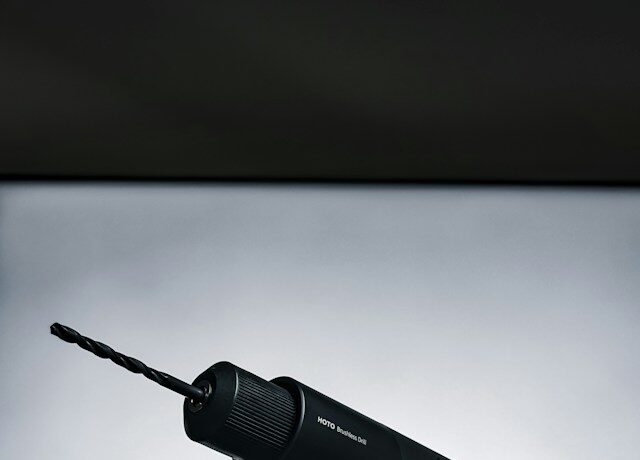Overview of Drill Bits
Greetings, handy homeowners and do-it-yourselfers! Ready to discover the mysteries of drill bits? Drilling projects with success depend on your ability to recognise the many types of drill bits, regardless of experience level with power tools. It’s easy to feel overwhelmed by the abundance of alternatives. But don’t worry! We will walk you through every aspect of drill bits, their different varieties, and how to select the best one for your particular requirements in this blog post. Now put on your hard hat and let’s get started!

Drill Bit Types
Having the appropriate drill bits for the job is crucial when drilling. Drill bits come in a variety of forms, each intended for use with particular materials and applications. Let’s examine some of the more prevalent kinds in more detail.
- Twist drill bits: Probably the most popular and adaptable type of drill bit. Their helical groove aids in debris removal when drilling through materials such as plastic, metal, and wood.
- Masonry Drill Bits: These drill bits are made especially for drilling into concrete or masonry, as their name implies. These materials are robust, and their carbide tip can handle that.
- Spade Drill Bits: Square drill bits, sometimes called paddle bits, have a flat blade with two cutting edges on opposite sides. They work great for rapidly and effectively drilling big holes in wood.
- Forstner Drill Bits: These specialised drill bits are excellent in drilling holes in wood that are precisely flat on the bottom. When aesthetics are important, like in furniture-making or cabinetry projects, they are frequently utilised.
- Hole Saw Drill Bits: As the name suggests, hole saws use a sharp edge resembling teeth to drill circular holes in a variety of materials, including metal sheets, plastic, and wood.
- Countersink Drill Bits: These are vital tools when you need to make an indentation to fit bolts or screw heads flush with the surface you’re drilling into.
- Step Drill Bits: With these special spiral-fluted instruments, you can make a variety of hole sizes with just one step bit instead of several separate drills!
These are but a handful of the numerous varieties of drill bits that are now on the market! When choosing your ideal drilling partner, don’t forget to take project specifications and material type into account!
Things to Take Into Account While Selecting a Drill Bit:
There are a few key considerations to make when selecting the ideal drill bit for your job. The material you plan to drill into is one of the most important factors to consider. To get the best results, different kinds of drill bits are needed for different materials.
In the case of working with wood, for instance, a regular twist bit might be adequate. But, you will require a special bit made especially for such materials if you are drilling into concrete or metal.
The size of the hole that needs to be made is another thing to think about. Since drill bits vary in diameter and size, it’s critical to select the one that best suits your needs. An incorrectly sized hole may arise from the use of a drill bit that is either small or too large.
Another crucial factor to take into account is the kind of drill you have. You should confirm that the bit you select is compatible with the particular drill model you own, as some drills are limited in the kinds of bits they can hold.
Think about the drill bit’s lifetime and intended use. Choosing a less expensive choice can make sense if you’re working on a one-time job and don’t plan on using the same kind of hole anytime soon. However, spending more money on better bits made of materials like cobalt or carbide might be worthwhile if you’re looking for longevity and long-term use.
Last but not least (not mentioned), consider material compatibility when selecting a drill bit.

Common Applications for Every Kind of Drill Bit
After discussing the many kinds of drill bits and the things to take into account when selecting one, let’s examine some of their typical applications in more detail. Knowing which drill bit is ideal for a certain application can help you complete drilling operations with the best possible outcome.
- Twist bits: These are multipurpose tools that work with metal, plastic, and wood surfaces. For general-purpose drilling jobs like making holes for screws or dowels, they are frequently used.
- Brad Point Bits: Having a sharp point that keeps the bit from straying while drilling into wood, these bits are perfect for woodworking applications. They pierce the surface cleanly without breaking it.
- Spade Bits: Made especially for bigger diameter holes in wood, spade bits have sharp, flat blades that enable them to remove debris from drill bits quickly. They are frequently employed to drill sizable holes in doors and frames.
- Masonry Bits: Masonry bits are specifically made to drill through stone, brick, concrete, and other masonry materials. They include carbide tips. Even under demanding circumstances, precision and longevity are guaranteed by these heavy-duty bits.
- Forstner Bits: Ideal for woodworking tasks that call for holes with flat bottoms and smooth sides that don’t break or tear out on the workpiece’s back. Forstner bits are excellent at creating precise mortise or pocket holes.
Keep in mind that these typical uses are only suggestions; they could change based on the demands of a particular project and personal preferences.





